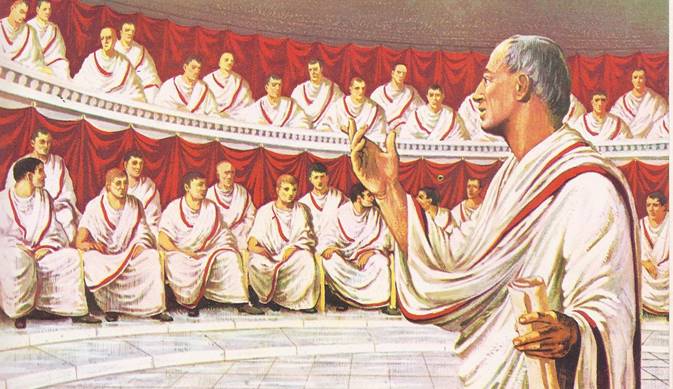Today we speak the words, “I am a World citizen,” with pride. To the people of the ancient world the statement, “I am a Roman citizen,” was a badge of high honour. Beginning as a small city state in Italy, Rome grew into a vigorous republic and finally into an empire so mighty that it included the whole of the Mediterranean world. Even after Rome’s grandeur had waned, its influence lived on among later peoples. Rome’s history is a reminder that the destiny of a nation rests more on the wisdom of its leaders and the character of its people …
Read More »Byzantine Glory A.D. 610-1057
The period from 610 to 717 was one of the darkest in Byzantine history. During that time, the edges of the empire crumbled under the pressure of powerful enemies. A people from northern Italy, the Lombards, conquered more than half of Italy. In central Arabia, the Arab tribes had joined together under the religion of Mohammed and marched against their neighbors. They took the kingdom of Persia, invaded Palestine and in 658 captured Jerusalem. The conquering Moslems, as the followers of Mohammed were called, swept on and soon took over Syria and Egypt. They marched along the northern shore of …
Read More »The New Capital: Constantinople A. D. 306-532
EMPEROR Constantine’s decision to build a new capital for the Roman Empire in the East did not come as a surprise to the people of the empire. Rome had lost much of its influence as the seat of government and emperors avoided the city. They preferred to build castles for themselves in distant provincial cities. Emperor Maximian, for example, had ruled from Milan. Emperor Diocletian had moved to Nicomedia, far to the east in Asia Minor and ruled from there. Constantine had many good reasons for turning eastward in searching for a site for his new capital. Most of the …
Read More »The Growing Church 100 – 500 A. D.
AT THE beginning of the second century, the Christian Church was a loosely organized group of independent local churches. There had been no strong leadership since the days of the apostles, no recognized authority to whom they could turn to settle their differences concerning the faith. Paul’s epistles had cleared up many points for them, but new questions were constantly arising. The Roman church had been taking a leading role for some time. There were a number of reasons for this. According to tradition, both Paul and Peter had died in Rome. It was the only church in the western …
Read More »The City Divided 130 B. C. – 70 B. C.
MARCUS TULLIUS CICERO, a young statesman known for his dramatic speeches, stood before a panel of judges in a courtroom in Rome. He stared at them angrily. For fifty days he had travelled through Sicily, collecting facts about the crimes committed by Caius Verres, the man who was on trial. Now the judges had told him that there would not be time to listen to his evidence. Cicero knew that the judges had been bribed. For it was no ordinary criminal that he meant to send to prison or to death. Caius Verres was an aristocrat and a senator and …
Read More »The City of Aeneas 1000 B. C. – 500 B. C.
The minstrels who wandered from country to country in the ancient world told a legend of Aeneas, a Trojan prince. According to the story, Aeneas escaped the Greeks who broke through the walls of Troy and fled to his ships with a little band of warriors. Rowing out onto the Hellespont, they watched while a great fire destroyed their city and they knew that they could never return to Troy. Then, the storytellers said, the gods spoke to Aeneas, telling him to turn his ships west. They commanded him to sail away from the Hellespont and the Aegean Sea, past …
Read More »




